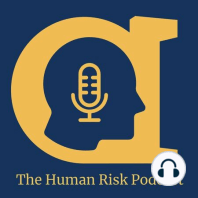37 min listen

Professor Niels Van Quaquebeke on Behaviour & Leadership under COVID19
Professor Niels Van Quaquebeke on Behaviour & Leadership under COVID19
ratings:
Length:
55 minutes
Released:
May 13, 2020
Format:
Podcast episode
Description
How has COVID impacted leadership and behaviour in business? On this episode, I speak with Professor Dr. Niels Van Quaquebeke. Niels is Professor of Leadership and Organizational Behavior at the Kühne Logistics University in Hamburg. He is additionally affiliated (part-time) with the University of Exeter as a Distinguished Research Professor.I've known him for a number of years, having first met when he taught me on a leadership course.Niels and I discuss how COVID19 is impacting leadership on a national and organizational level. We also explore some ways we can each, as individuals, cope with COVID19 and make ourselves more robust and future-proof.Not only is he incredibly insightful, but he's also a lot of fun. For more on Niels, visit the KLU website: https://www.the-klu.org/faculty-research/resident-faculty/niels-van-quaquebeke/For corporate enquiries including training see http://www.respicere.de/ Niels is also an avid user of social media and I recommend following him:Twitter - @NielsQuaquebeke - https://twitter.com/NielsQuaquebekeInstagram - @NielsVanQuaquebeke - https://www.instagram.com/nielsvanquaquebeke/
Released:
May 13, 2020
Format:
Podcast episode
Titles in the series (100)
Tom & Christian's 2nd Human Risk Talk: In this episode, I'm joined again by co-host Tom Hardin. Together we explore Human Risk related stories we've come across that we think are worth diving into in more detail. You can hear Tom's story in Episode 2. In this episode, we look at three... by The Human Risk Podcast